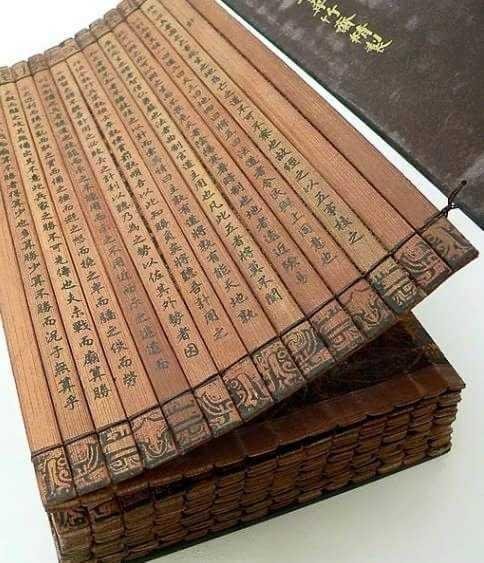"The Art Of War"

(Hanyu Pinyin: Sūnzĭ Bīngfǎ) is a military philosophy book thought to be written in the 6th century by Sun Zi (also called Sun Tzu). It consists of 13 chapters in which each section discusses the strategies and various methods of war. This work is China's most revered and most famous Chinese military writings abroad China. Who wrote this book is still debated by historians today. Some scholars argue that Sun Zi is not the original name of the author of this book, but the title given to the author. Because, the word "Zi" in the name of Sun Zi is actually used to refer to a philosopher so that Sun Zi is defined as "Sun philosopher."
This book is also one of the oldest military strategy books in the world and has much influence in the planning of both East and West World military strategy, business tactics, and more. The book written around 400-320 BC was first introduced in Japan in 716-735 AD Meanwhile, in Europe, this book was introduced by the Jesuit Jean Joseph Marie in 1772, which translated it into French. Then translated into English by Everard Captain Ferguson Calthrop in 1905, a British captain. Different leaders such as Mao Zedong, general Vo Nguyen Giap, Baron Antoine-Henri Jomini, General Douglas MacArthur, Napoleon, and certain members of the high command Nazimengklaim have draw inspiration Art of war Sun Tzu from his work. It has also been applied to business and managerial strategies.
-quote
Some of the verses in this book are often quoted and used as a pearl word, for example the last few verses of chapter 3:
故曰: 知彼 知己, 百戰ת殆; 不知 彼 而 知己, 一 勝 一 負; 不知 彼, 不 知己, 每 戰 必敗 So here it is said: He who knows the other (the enemy) and knows himself, will not be defeated in a hundred battle. He who does not know the other (the enemy) but knows himself has a balanced opportunity to win or lose. He who does not know the other (the enemy) and himself tends to lose in every battle.
Which is also often abbreviated as:
知己知彼, 百戰百勝 If you know yourself and your enemies, you will not lose in a hundred battles
In addition, verses that are also often used in modern life are:
(是故) 百戰百勝, 非 善 之 善 者 也; 不 戰 而 屈 人 之 兵, 善 之 善 者 也 (So) fighting in a hundred battles and winning one hundred wins is not a reflection of the most powerful strategy. The ability to defeat enemies without battle at all is a reflection of the most powerful strategy. War implementation is a very important issue for the nation.
this book is nice but i think we should not talk about war its really adorable i mean what should we do to beat another country, region ,city or village i mean peoples death would be just meaningless you will arder your army i,ll order my army for war but whose gonna die? you or me?not none of u. our soliders going to die and their deaths would be meaningless because this world is never gonna be in onealso two sides one here side and another one would be opposite positivity and negativity are immortals so we have to solve this problem to to sharethe weapons or stratergies for war
i hope you will understand my point i am also weak in english thats y my typing is not well
i am new onsteemit if you agree with me please welcome me here as a freind